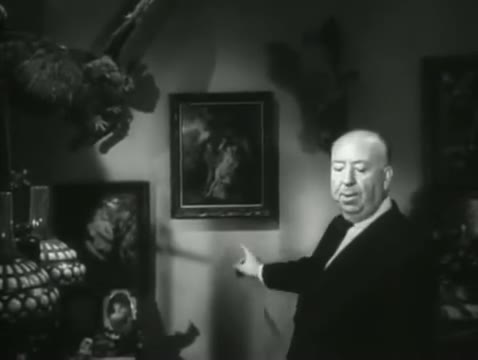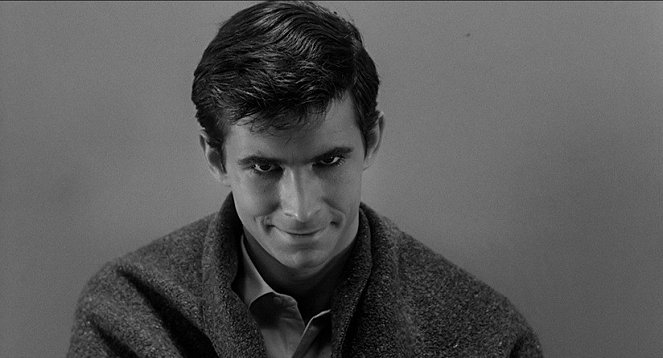Directed by:
Alfred HitchcockScreenplay:
Joseph StefanoCinematography:
John L. RussellComposer:
Bernard HerrmannCast:
Anthony Perkins, Vera Miles, John Gavin, Janet Leigh, Martin Balsam, John McIntire, Simon Oakland, Frank Albertson, Patricia Hitchcock, Vaughn Taylor (more)VOD (3)
Plots(1)
Alfred Hitchcock's landmark masterpiece of the macabre stars Anthony Perkins as the troubled Norman Bates, whose old dark house and adjoining motel are not the place to spend a quiet evening. No one knows that better than Marion Crane (Janet Leigh), the ill-fated traveler whose journey ends in the notorious "shower scene." First a private detective, then Marion's sister (Vera Miles) searches for her, the horror and the suspense mount to a terrifying climax where the mysterious killer is finally revealed. (official distributor synopsis)
(more)Videos (3)
Reviews (9)
A cinematic delicacy that belongs to the golden treasury of world cinema. Even if Alfred Hitchcock had made nothing else, he would still deserve a monument carved in marble. The shower scene or the fall down the stairs are, for me, symbols of perfect direction, while the slowly turning chair in the basement symbolizes horror as a distinct genre. Anthony Perkins is excellent, and he never managed to surpass his performance and essentially remained trapped in the role of the deranged Norman. The ingredients in this film are balanced so well that it became a delicacy... The extraordinarily impressive music is also worth mentioning. Overall impression: 100%.
()
Alfred Hitchcock is a master at creating a dark atmosphere, the constant rain, black and white composition, the old house, and a few shots of a heavily clouded sky literally predicts evil, accompanied by brilliant music. Overall, this film was revolutionary for its time and something unseen. Today? The power and shock have somewhat diminished, times are changing after all, but even after all these years, this film still has something special.
()
When I saw Psycho in a packed cinema, it evoked more laughter than horror. It wasn't laughter of relief in response to something shocking, but in response to some now unintentionally funny dialogue and situations towards the end of the film. Times change and what worked 40 or more years ago doesn't have the same power today. I appreciate Hitchcock's great surprise for the uninitiated (the famous shower scene and its completely unexpected consequence) and the shocking twist. The black-and-white cinematography is also excellent, and the realities of where the film takes place are impressive. But overall, Hitchcock's most famous film didn't leave a deep mark on me. Just because it was made by the great Master himself, I won't waste a full rating. From a historical point of view, five stars. From a purely subjective point of view and overall emotional experience, a decent four stars.
()
Somehow I'm getting lost here in the flood of "immortal", "classic", and "timeless". I mean, Psycho has undeniable value considering when it was made, but for all intents and purposes it's now just an outdated entertainment artifact. The script scrapes its dialogue from the bottom, the acting and general direction of the actors is severely laughable (apart from Anthony Perkins, who is quite out of step with the production of the time in both his performance and appearance), the early identification of the killer takes the edge off the scare, and the editing is downright prehistoric. The interesting reveal and cinematography were enjoyable, plus I believe that to experience Psycho in its time would be pretty psycho, but nowadays the film operates on significantly different algorithms.
()
It’s misguided to rate Psycho as a representative of any genre or as a film that scared the viewer on the scale of a few stars. Psycho deserves to be judged as a demonstration of the possibilities of the art of filmmaking and as a showcase of Alfred Hitchcock’s brilliant creativity. And by taking this path, it’s possible to come to only one conclusion – Psycho is not a film; it is a super-film. First there’s that, and then there are films that can rated with some stars according to how well made they are. ___ Let’s imagine that a painter’s brush has X possibilities of movement, angle of approach to the canvas and intensity of contact with the canvas. Now let’s apply that principle of possibilities to film directing and working with film techniques and with the viewer. Hitchcock harnessed these X possibilities that other filmmakers had been working with, juggled them and created a new palette of XYZ possibilities. Filmmaking is a science. When will there ever be a greater filmmaking innovator that Hitchcock was?
()



Ads